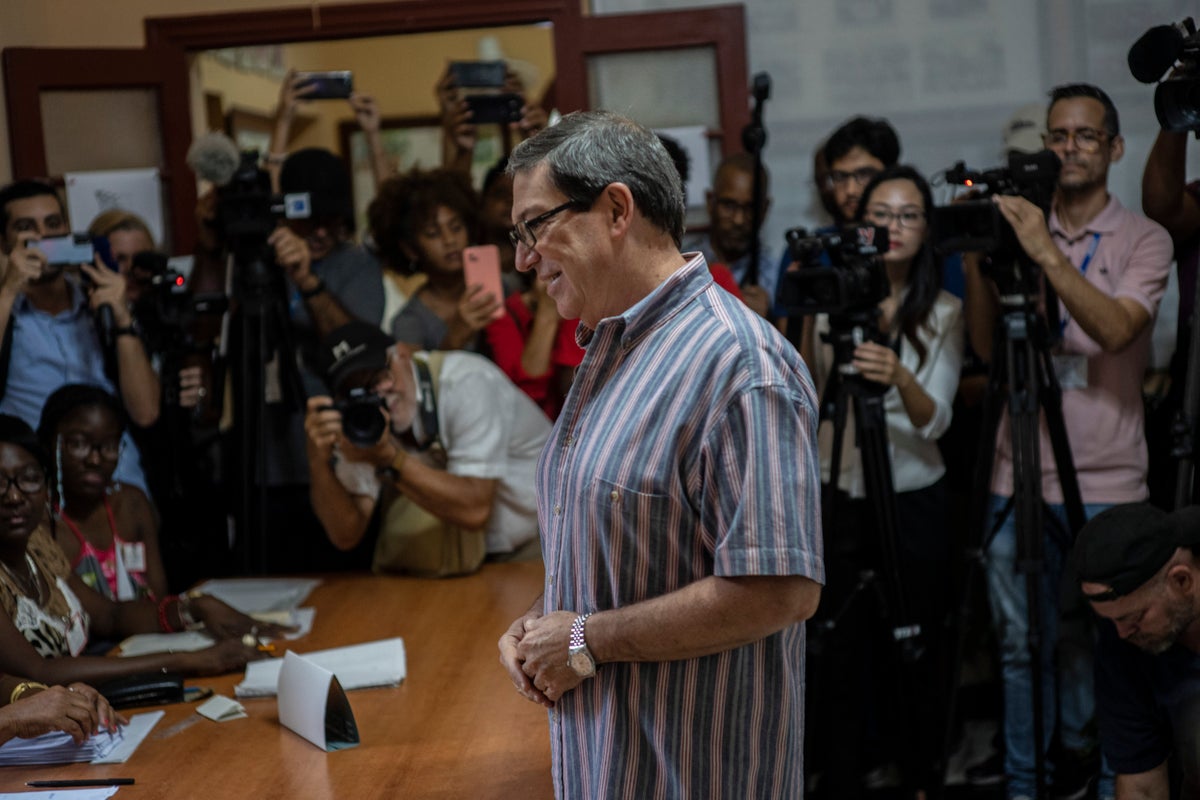
Cuba's government reported Monday that abstention in National Assembly elections was 24.1%, a figure some analysts said reflects discontent with the island's economic crisis as well as a rise in apathy.
While a 75.9% voter turnout in Sunday’s voting is high compared with other countries, it is about nine percentage points lower than voter turnout in Cuba's 2018 National Assembly elections and far lower than the 94.2% turnout seen in 2013.
Since there was only one candidate running for each of the 470 legislative seats, turnout was watched by observers as a political thermometer.
“It is evident that the government is dealing with less unconditional support from its bases,” said Arturo López-Levy, a professor at the Autonomous University of Madrid.
Cuba’s economy was badly hit by the pandemic and increased U.S. sanctions, and the island nation has seen a surge in migration along with power outages and fuel shortages. The communist-ruled nation was rocked by rare protests in July 2021 and October 2022.
Michael Shifter, an analyst with the Washington-based think tank the Inter-American Dialogue, said the 24% abstention is high in historical terms since the general average for non-participation has been 10%.
Shifter described abstention in Cuba as a complex phenomenon that could reflect discontent with the government’s “bad performance” and “apathy or disinterest.”
The voter turnout figures from Sunday’s legislative voting were announced by Alina Balseiro, president of the National Electoral Council. She said that of 8.1 million people registered to vote, 6.1 million voted. Some 6.2% of the ballots were blank and 3.5% voided.
While critics contend that voters in Cuba's legislative elections do no more than endorse a slate of candidates vetted by Communist Party officials, Cuban officials say the system is inclusive and builds unity, while steering clear of the divisiveness of party politics or any ill effects of big-money donors.
Voting in Cuba is not compulsory but traditionally was considered a national duty.
National Assembly elections are held every five years and are technically nonpartisan. But they fall under the indirect control of the Communist Party.
Half of the 470 candidates came from municipal assemblies chosen in local elections last November. The other half were nominated by groups representing broad swaths of society, such as a women’s group and workers unions. All were vetted by election committees with ties to the party.
The National Assembly is nominally the country’s highest governing power. It approves laws and votes for the president and executive officials from among its members.
The new National Assembly is expected to convene April 19.







